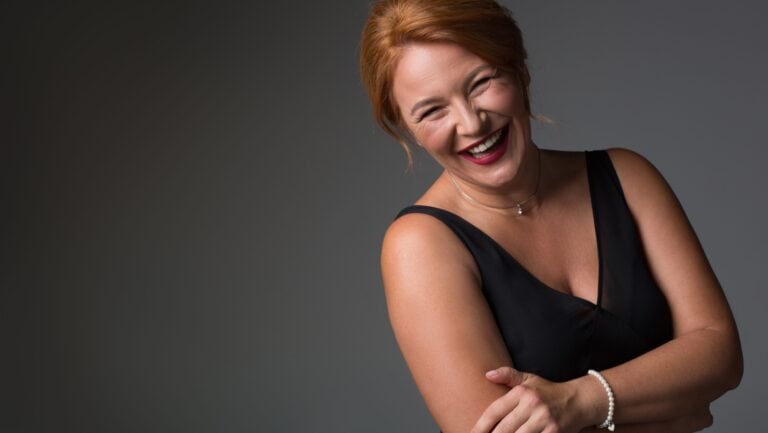My husband left me after my cancer diagnosis at 50 – now I get why
“In sickness and in health.” We all say the words, but I never imagined they came with an asterisk. One minute, I was a 50-year-old woman planning a trip for our 20th anniversary. Next, I was sitting in a sterile office, the word “cancer” sucking all the air out of the room. But the shock of the diagnosis was nothing compared to the shock that came a few weeks later, when my husband—my rock, my partner for two decades—told me he couldn’t do it anymore. And just like that, he was gone.
The grief was a double-edged sword: I was mourning my health and my marriage all at once. For months, I blamed myself. What had I done wrong? Was I not strong enough? Did he ever really love me?
Then, late one night, scrolling through forums and clinical studies, I found the answer. It took me months of grief and research to realize my personal tragedy wasn’t just personal—it was a statistic. I learned that a woman is six times more likely to be separated or divorced after a serious diagnosis than a man, according to Seattle Cancer Care Alliance. Suddenly, my story wasn’t just my story; it was the story of thousands of women. And I finally started to understand why he left.
The statistic that explained my new reality

The first time I saw the numbers, I felt a strange sense of relief. It wasn’t just me. I wasn’t uniquely unlovable or broken. I was a data point in a trend that is as heartbreaking as it is infuriating.
A Seattle Cancer Care Alliance study found that while the overall divorce rate for cancer patients is 11.6%, which is pretty similar to the general population, the numbers get skewed when you look at gender.
When the wife is the patient, the divorce or separation rate jumps to 20.8%. But when the husband is the one who’s sick? The rate plummets to just 2.9%. Let that sink in. It’s not the illness that predicts a breakup. It’s who gets sick.
As Dr. Marc Chamberlain, a lead researcher on the study, put it, “Female gender was the strongest predictor of separation or divorce in each of the patient groups we studied.” Reading that was like a lightbulb going on in the darkest room of my life. My marriage didn’t end because of a personal failure; it ended because it ran headfirst into a grim societal reality.
He was my husband, not my caregiver
Looking back, I can see he wasn’t built for this role, and in many ways, society hadn’t prepared him for it either. He was a classic “fixer.” Leaky faucet? He’d have it fixed in an hour. Problem at work? He’d brainstorm a ten-point plan. But cancer? Cancer wasn’t a problem he could solve.
The role he wasn’t built for
He couldn’t fix me, so he froze. He’d sit silently during doctor’s appointments, his face a mask of confusion. The emotional fallout, the endless logistics, the sheer helplessness of it all—it overwhelmed him.
This isn’t just my story. An Iowa State University study found a 6% higher probability of divorce for couples where the wife got sick, with no similar increase when the husband was the patient.
Amelia Karraker, the study’s lead author, explained it perfectly: Men, especially older men, “have not been socialized to be caregivers in the same way women have, and are less comfortable in that role.”
Some sociologists call this “gender dissonance”—a conflict between the demands of caregiving and traditional masculine identity. He wasn’t just my husband anymore; he was being asked to be a nurse, a scheduler, an emotional support system—roles he may have subconsciously viewed as “feminine” and for which he had no training.
How ‘financial toxicity’ poisoned our marriage

Before the cancer, we argued about normal things, like who forgot to take out the recycling. After the diagnosis, every conversation was about money. And the fear in his eyes wasn’t just about losing me; it was about losing everything.
The third person in our marriage: Debt
The term for what we experienced is “financial toxicity,” and it’s as destructive as any chemotherapy. According to AARP The Magazine, the average total cost of cancer treatment in the U.S. is a staggering $150,000. Some chemo drugs can run $12,000 a month, and newly approved drugs can average $283,000 a year.
Is it any wonder that cancer patients are nearly five times more likely to declare bankruptcy than people without cancer?
We weren’t just fighting a disease; we were fighting a financial avalanche.
When the bills pile higher than the hope
The constant stress of co-pays, insurance denials, and lost income wore us down. As researcher Amelia Karraker points out, “financial strain is a major predictor of divorce in and of itself.”
A recent study found that nearly two-thirds of partners of cancer patients report financial burden, and 38% lose income because of it. This isn’t just stressful; it’s directly linked to a poorer quality of life for the caregiver.
For some couples, the financial pressure becomes so extreme that they opt for a “medical divorce.” It’s a heartbreaking strategy where a couple legally separates—not because the love is gone, but to protect their assets and allow the sick spouse to qualify for Medicaid.
The American healthcare system can literally make it more financially viable to divorce than to stay married “in sickness.”
The slow, silent death of intimacy
Long before he packed his bags, our partnership had already started to disappear. The illness became the third person in our bed, crowding out everything else.
When you’re no longer lovers, but a patient and a nurse
Our roles shifted from partners to patient and caregiver. Researchers have a term for this: the “partnership disappears behind the disease.” Our conversations changed from planning our future to managing my symptoms. Date nights were replaced by hospital stays.
The fun, the spontaneity, the shared identity we had built over 20 years—it all got lost in the shuffle of pills and appointments. We were a team, but we were no longer a couple.
The conversation we couldn’t have
Then there was the part no one wants to talk about: s*x. My body had become a medical battleground. Scars, hair loss, exhaustion… I didn’t feel like myself, let alone a desirable woman.
The silence around intimacy grew deafening. Experts say couples often avoid these topics because they “don’t want to upset the other person.” But that protective silence creates a chasm. He didn’t know how to tell me he was lonely, and I didn’t know how to tell him I felt broken.
The physical act of him walking out the door wasn’t the actual end. The end happened slowly, in all the unspoken fears and the loss of connection that the cancer carved between us. The relationship had already been hollowed out from the inside.
Rebuilding a life he didn’t break
For a long time, I felt like a victim. He left me. He broke our vows. He abandoned me at my lowest point. All of that is true. But understanding the “why” behind it all has been the key to my healing.
Alone, but not lonely
My marriage didn’t fail because I wasn’t enough; it failed because it was crushed by a series of predictable, powerful forces. The gender bias in caregiving, the immense psychological toll on him, the crushing financial toxicity, and the erosion of our intimacy—these were the culprits.
Understanding this depersonalized the trauma. It allowed me to see that his leaving was less about me and more about a system that sets up marriages like ours to fail in a crisis. It freed me from the burden of self-blame.
Finding your people

The greatest relief came when I finally connected with other women who had the exact same story. The internet can be a dark place, but it can also be a lifeline. Finding my people—women who had also been abandoned—was the moment I stopped feeling sorry for myself and started feeling empowered.
If you’re reading this and it sounds like your life, please know you are not alone. There is help.
- For Emotional Support: Organizations like CancerCare offer online support groups specifically for spouses and partners.
- Well Spouse Association has peer groups for “former well spouses” who have lost partners to divorce or separation.
- Breastcancer.org and even Reddit can connect you with people who truly get it.
- For Financial Help: If you’ve lost your partner’s income, organizations like the Patient Advocate Foundation and CancerCare offer funds to assist with non-medical expenses, such as rent, utilities, and childcare.
My husband left, yes. But a whole new community of warrior women showed up. And that has made all the difference.
Why investing for retirement is so important for women (and how to do it)

Why investing for retirement is so important for women (and how to do it)
Retirement planning can be challenging, especially for women who face unique obstacles such as the wage gap, caregiving responsibilities, and a longer life expectancy. It’s essential for women to educate themselves on financial literacy and overcome the investing gap to achieve a comfortable and secure retirement. So, let’s talk about why investing for retirement is important for women and how to start on this journey towards financial freedom.







